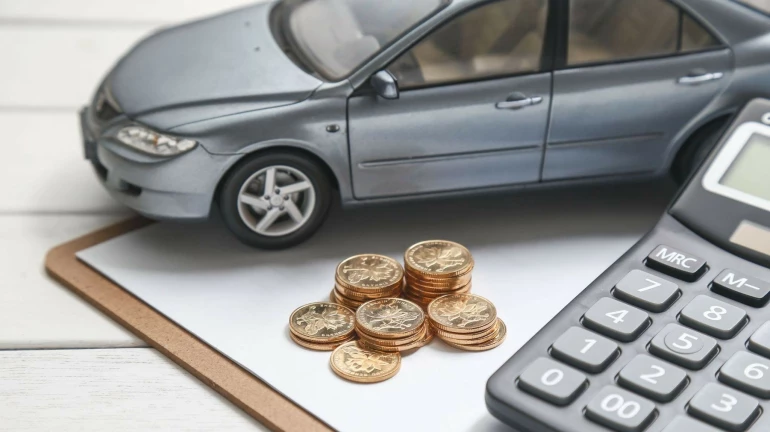
When it comes to selling your car, understanding how its age, mileage, and overall condition impact its resale value is crucial. These factors significantly determine how much you can expect to get when you decide to sell. This article breaks down how each of these elements affects the value of your car.
The age of your car is one of the most significant factors influencing its resale value. Generally, cars depreciate the most in the first few years after purchase. This depreciation rate slows down as the car ages, but it doesn’t stop.
New cars lose about 20-30% of their value within the first year of ownership. As a result, a new car will almost always be worth less if you sell it soon after purchasing it.
While older cars may not depreciate as quickly, they generally have a lower resale value due to wear and tear. However, a well-maintained vehicle of reasonable age might still fetch a decent price, especially if it is rare or in demand.
If your car is relatively new (within 3-5 years), you might still get a good return, but as it crosses the 5-year mark, the depreciation starts to impact its resale value significantly. After 10 years, the car's value tends to be much lower, even if it is well-maintained.
The odometer reading is another crucial factor affecting your car's resale value. It reflects how much the car has been driven and helps potential buyers gauge its remaining life.
Low driving distance generally indicates less wear and tear, which is appealing to buyers. Cars with lower odometer readings often command higher prices because they are perceived as being in better condition and having a longer lifespan ahead of them.
On the other hand, high odometer readings can significantly lower the car’s resale value. A car with a high distance under its belt suggests that it has been driven extensively, increasing the likelihood of mechanical issues and repairs in the near future. Buyers are typically hesitant to purchase cars with high odometer readings unless they are reasonably priced or well-maintained.
If your car is below this range, it could be considered "low odometer reading" and may fetch a better price. If it's above that, buyers might worry about potential repairs, reducing the vehicle’s appeal.
The condition of your car is often the first thing a buyer notices, and it can heavily influence how much they’re willing to pay. A well-maintained car, inside and out, can have a much higher resale value than a car that looks worn out or has significant issues.
Exterior condition plays a huge role in resale value. A car with a well-maintained exterior, free of significant dents, scratches, or rust, will usually sell for more. Vehicles that have been properly washed, waxed, and taken care of look much more appealing to buyers, as they suggest the car has been well cared for.
The interior condition is just as important. A clean, odour-free interior with minimal wear on the seats, dashboard, and carpet will be more attractive to potential buyers. Cars with stained upholstery, cracked dashboards, or lingering smells from pets or smoke can lower a car’s resale value significantly.
Mechanical condition is another essential aspect of the car’s overall condition. A vehicle running smoothly and with a solid mechanical history will retain a better value. A well-maintained engine, good brakes, working air conditioning, and functioning electronics can all contribute to a higher resale price.
If your car has a history of mechanical problems or you’ve skipped regular maintenance, its resale value could be significantly reduced.
Here are some tips to Maximise Your Car's Value.
1. Routine Maintenance: Regular maintenance keeps a car's value in the resale market. Fixing small issues before they become bigger problems will help you maintain your resale value. Oil changes, tyre rotations, checking brakes, and other scheduled services must be attended on time.
2. Cleanliness: The interior and the car's body should be kept clean. Regular washing, waxing, and vacuuming can keep your vehicle shining like a new coin, thus catching the attention of potential buyers. So, if you plan to sell a car in Hyderabad or any other city, keep it clean.
3. Repair Small Problems: If you see something minor, such as a broken light or a small dent, just try to get it fixed. These repairs may not cost much, but they will matter to potential buyers.
4. Keep Up with Service Records: Buyers want to know that the car has been cared for. Recording all these maintenance, repairs, and service history puts the potential buyer at ease with your selling position and strengthens your standpoint for justifying that asking price.
5. Find the Perfect Selling Moment: The right timing can also affect how much you can socially negotiate for your vehicle. The demand for used cars suddenly rises in certain seasons, like the festive season, when people might want to purchase a car.
Make sure that all these factors account for the resale value of your car: age, distance driven, and condition. Age and odometer reading will make a huge difference in depreciation, but taking care of your vehicle and keeping it in good condition will help maintain its value. So, if you ever think of selling your car, consider these things before selling it. You will get a great return on your vehicle sale with the right care.
